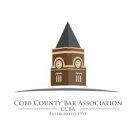Wills, Trusts & Estates
Estate planning is the process of managing one’s assets and determining how those assets will be distributed after one’s death. These assets may include real estate, stocks, bonds, mutual funds, personal property, retirement accounts, bank accounts, etc. Collectively, a person’s assets make up his or her estate. Between estate taxes, probate fees, and financial hardships caused by delays in being ale to access assets, there are many things that can diminish what you are able to leave to your family. While some costs are unavoidable, tailoring your estate plan to your specific circumstances can help maximize what goes to your heirs. At Burney Law, our practiced attorneys will ensure that your case and estate is handled with the care, compassion and experience you expect so that the best possible outcome can be achieved through negotiation, mediation or litigation and trial. Our attorneys will defend your rights and pursue an achievable outcome to your satisfaction so that you can move forward with your life.
ADVANCE DIRECTIVE
Advance directive is the general term that refers to the various documents that could include a living will, instruction directive, health care proxy or health care power of attorney. A living will (or instruction directive) alerts medical professionals and family to the treatments an individual wants to receive or refuse. In most states this document only goes into effect if that person meets specific medical criteria and are unable to make decisions. In a health care power of attorney (or health care proxy) a family member or trusted friend is selected to make health care decisions when that person cannot. This document gives directions that a selected individual is the spokesperson (or health care agent or proxy) about the full range of care decision. If a person regains the ability to make decisions, the agent cannot continue to act on the person’s behalf. An advance directive does not expire and remains in effect until you change it.
GUARDIANSHIP
In a legal guardianship, one person or entity is allowed to make decisions for another. The Courts establish guardianship usually appoint guardians in instances of incapacity or disability. Unless an incapacitated individual has a power of attorney and advance medical directives already in place, the Court will appoint a guardian to make both financial and non-financial decisions for the individual. A guardian should manage investments, real estate, etc. so they do not lose value over time and also pay bills to ensure excessive liabilities do not accrue during this period.
POWER OF ATTORNEY
A power of attorney is a written document in which the “principal” appoints someone else, referred to as an “agent” or “attorney-in-fact,” to act for her under certain circumstances. This range of responsibilities could possibly include the ability to access bank accounts, sign income tax returns, sell stocks and manage real estate, etc. or be limited to a single transaction. All powers of attorney expire at the time of the principal’s death. The agent will no longer have the authority to make decisions after that time.
PROBATE
Probate refers to the court process by which a Will is proved valid or invalid. Our attorneys follow a series of procedures for filing required documents and publishing notices of probate. As executor, Burney Law will make certain the estate property is safe during the probate process preparing all assets and coordinating appraisals. Our firm works diligently to settle all outstanding disputes and distribute assets to beneficiaries.











